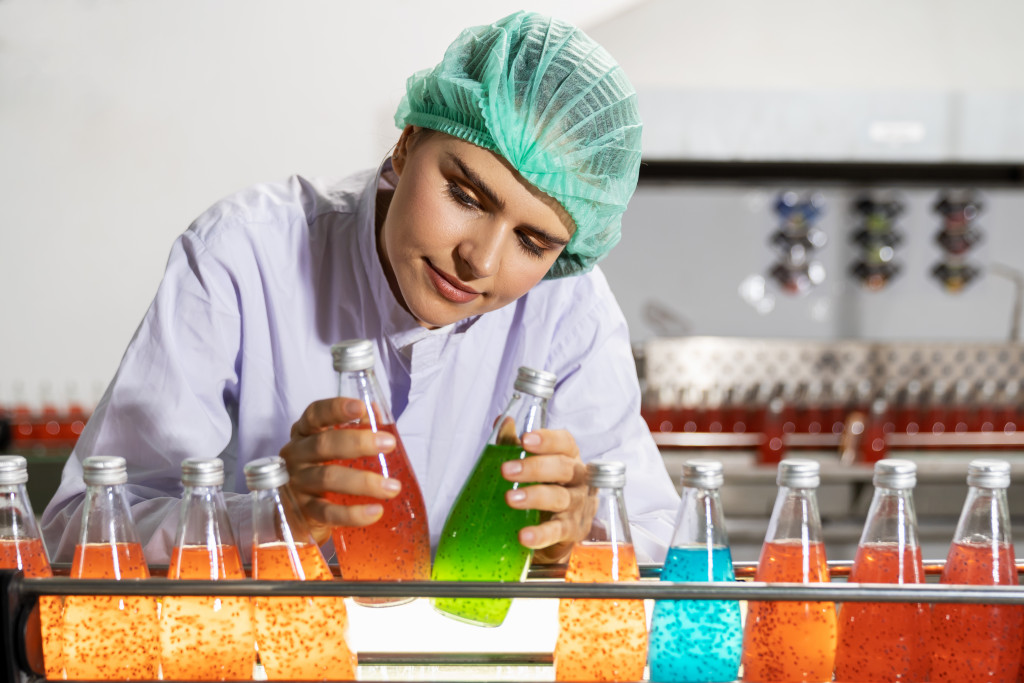- Automation in administrative tasks can heighten efficiency, reduce errors, and enhance customer engagement in beverage companies.
- Precision in operational processes is crucial for production quality control, cost-effectiveness, and safety compliance.
- Employing technology can promote sustainability in the beverage industry through renewable energy and waste management.
- Data analytics and IoT technologies can be pivotal in monitoring and improving a company’s environmental footprint.
The beverage industry is a lucrative sector, boasting a substantial potential for profitability. According to a report from Grand View Research, the global non-alcoholic beverage market size was valued at USD 967.3 billion and is expected to witness steady growth over the forecast period. This growth can be attributed to rising consumer awareness regarding overall health and wellness and the shift towards healthier beverages away from traditional sodas. Moreover, innovative and diverse product offerings, such as plant-based and dairy-alternative drinks, are expected to boost market growth further. Therefore, venturing into the beverage company can be profitable, provided that consumer preferences and market trends are aptly catered to.
However, the sector can be competitive, with multiple players vying for consumer attention and market share. In such a scenario, utilizing technology can give companies an edge over their competitors. By incorporating advanced technologies into various processes, beverage companies can improve efficiency, reduce costs, and enhance overall performance. Here are a few technology-based solutions that can benefit beverage companies:
Automated Systems for Administrative Needs

Automating administrative tasks can significantly boost the competitive edge of a beverage company. Automation helps reduce manual, time-consuming tasks, enabling staff to focus on more critical, strategic aspects of the business. This higher-level focus can lead to improved decision-making and, ultimately, better business outcomes.
One way to implement automation is by using AI-based software for inventory management. Such software can automatically track stock levels, predict future stock needs based on historical data, and even place orders as needed. This reduces the risk of stockouts or overstocking and saves valuable time.
Another area to consider is customer relationship management (CRM). Automated CRM systems can manage customer data, analyze consumer behavior, and predict future trends. They can also automate customer communication through personalized emails or notifications, enhancing customer engagement and loyalty.
Automating financial processes such as invoice generation, accounts payable, and receivables can reduce errors and increase efficiency. Software like QuickBooks or Xero can streamline these processes and provide real-time financial data, aiding in better financial management and planning.
In conclusion, administrative automation can improve efficiency, reduced errors, better customer engagement, and enhance decision-making, making your beverage company more competitive in this bustling market.
Production Improvement Through Precision

Precision in the operational process is paramount to maintaining quality, consistency, and efficiency of beverage production. Negligence in accuracy could lead to significant financial implications due to waste, downtime, and product recalls. Here are four areas where accuracy is crucial:
Quality Control
Quality control ensures that each beverage product meets the same high standards. Automatic piston filler machines, for example, can fill each bottle precisely to the same level, ensuring consistency. These machines also minimize the risk of spillage, saving companies from wastage and maintaining cleanliness in the production area.
Efficiency in Production
Efficient production is critical to meeting market demand. Precision in operations, such as accurate product measurements and process timing, can significantly reduce downtime. For example, software like SIMATIC IT, specifically designed for the food and beverage industry, can monitor production processes in real time, detecting faults or deviations. This enables timely intervention and prevents delays.
Cost-Effectiveness
Precision can also result in cost-effectiveness. Precise measurements and accurate filling prevent the overuse of resources, thus reducing costs. One example is using flow meters to measure ingredients accurately, thus avoiding wastage.
Safety and Regulatory Compliance
Finally, precision ensures safety and regulatory compliance. Accurate labeling, for instance, is crucial to communicating allergen information to consumers and meeting regulatory requirements. Precision in bottling operations, such as sealing and capping, is critical to avoid spoilage or contamination, ensuring product safety. One way to achieve this is through automated machines like capping and sealing equipment.
Pursuing Sustainability Through Tech
As the global consciousness shifts towards environmental responsibility, sustainability has become more than just a buzzword; it’s a competitive necessity for businesses of all scales, including the beverage industry. Technology can play a crucial role in making beverage companies more sustainable and, consequently, more competitive.
Firstly, using renewable energy technologies like solar panels and wind turbines can significantly reduce the environmental impact of production processes. By eliminating fossil fuels, these technologies lower carbon emissions and decrease energy costs in the long run, making operations more cost-effective.
Secondly, waste management technologies can help companies recycle or repurpose waste, contributing to a circular economy. For instance, water recycling systems can treat and reuse process water, reducing water consumption. In an industry that relies heavily on water, this can lead to substantial savings and make companies more resilient to water scarcity issues.
Moreover, innovative packaging technologies enable beverage companies to reduce their plastic use. Edible or biodegradable packaging options made from plant-based materials are gaining traction. They can help companies reduce their environmental footprint, respond to consumer demand for eco-friendly practices, and differentiate themselves in a competitive market.
Finally, companies can utilize data analytics and IoT technologies to monitor their energy use, emissions, and waste generation in real time. This data can then identify inefficiencies, set sustainability goals, and track progress, fostering a culture of continuous improvement.
Final Thoughts
In a competitive beverage sector, leveraging technology can help companies stay ahead. From automating administrative tasks to improving production precision and pursuing sustainability, there are numerous ways for beverage companies to incorporate technology into their operations. By doing so, they not only enhance their competitiveness but also contribute to the overall growth and progress of the industry.
